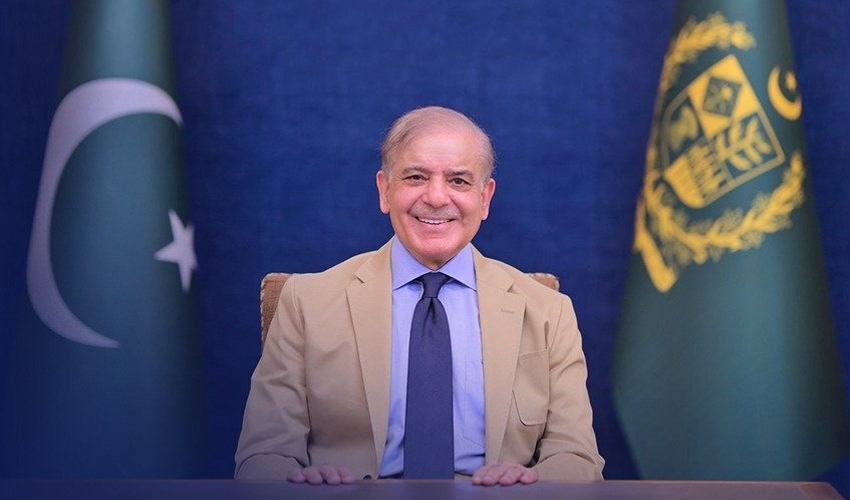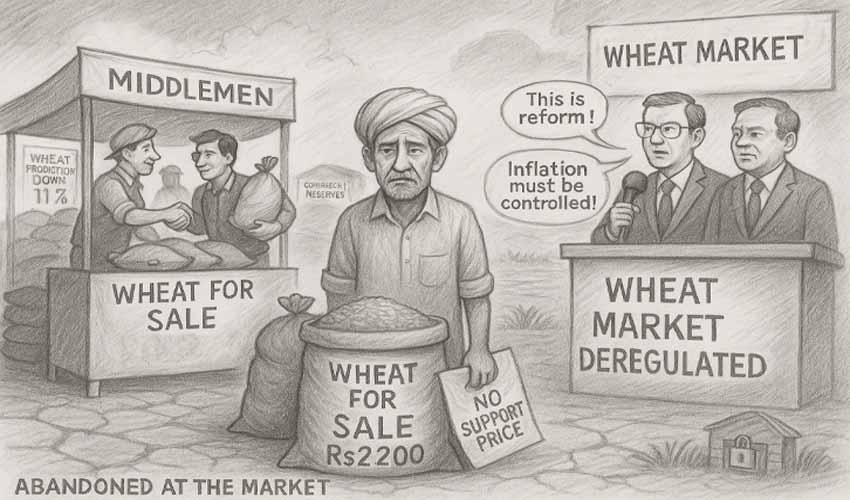Prime Minister Shehbaz Sharif delivered a heartfelt address to the nation, extending his warmest congratulations on the auspicious occasion of Hajj and Eid al-Adha.
He began by expressing his deep concern over the ongoing persecution in Gaza, revealing that 40,000 people have been martyred in the region. He emphasized the necessity for Palestine and Kashmir to attain their rightful freedom, noting the unprecedented atrocities committed in Kashmir.
In his address, the Prime Minister highlighted the contributions of key political figures, including Asif Ali Zardari, Bilawal Bhutto, and Maulana Fazlur Rehman, in navigating Pakistan towards a path of development and prosperity. He credited the collaborative efforts with Nawaz Sharif, Asif Zardari, and Fazlur Rehman for saving the country from economic default.
Reduced inflation
Sharif proudly announced a significant reduction in inflation, stating it has decreased from 38% to 12%, marking a major achievement for his administration. Reflecting on the past four years, he acknowledged the severe inflationary storm that impacted the country, causing immense suffering for the common man, widows, and orphans struggling to meet basic needs.
Highlighting the government’s accomplishments, the Prime Minister noted that on the completion of 100 days in office, the price of petrol was reduced. He assured the nation that Pakistan is now on a trajectory of recovery, moving towards economic stability and growth.
PM Shehbaz underscored the importance of unity and resilience, encouraging the nation to continue supporting the government’s efforts. He assured that the government’s focus remains on alleviating the hardships faced by the people and steering the country towards a brighter future.
Learning from past mistakes
Prime Minister Shehbaz Sharif has called for a forward-looking approach, emphasizing the importance of learning from past mistakes to reclaim Pakistan’s former glory. He urged the nation to focus on the future rather than dwelling on past grievances, promising concerted efforts to further reduce inflation and attract investment.
He reaffirmed his commitment to prioritising the welfare of the people over personal interests. He stressed the need to eliminate extravagant government spending and deemed it necessary to abolish ministries and institutions that burden the nation instead of serving the public. “Our primary focus is to eliminate lavish spending institutions that do not contribute to public service,” he stated.
Highlighting the urgency for economic reform, Sharif announced that significant decisions regarding the economy would be made in the next month and a half. He pointed out the rampant corruption within the Public Works Department (PWD) and underscored the need for stringent accountability measures.
Pakistan’s economic revival
The premier also acknowledged the vital support of international allies, naming China and Saudi Arabia as steadfast friends of Pakistan. He noted that the Army Chief’s recent visits to China, Saudi Arabia, and Qatar were part of broader efforts to foster investment and propel Pakistan towards rapid development and prosperity.
Sharif reiterated his commitment to serving the nation and making tough decisions necessary for Pakistan’s economic revival. He assured the public that his administration would prioritize transparency, efficiency, and public service in all governmental functions.
The Prime Minister underlined the strategic visits of the Army Chief to China, Saudi Arabia, and Qatar, which successfully attracted substantial investments. The UAE has committed to investing $10 billion in Pakistan, with a well-devised system in place to optimise these funds. He praised the Army Chief’s efforts in engaging with investors, expressing optimism about Pakistan's economic future.
IMF program
“Getting rid of debt is challenging but not impossible,” the Prime Minister asserted, reflecting on Nawaz Sharif’s successful departure from the IMF in 2017. He promised that the current IMF program would be the last, contingent on continued investment and gradual debt reduction. “Everywhere I go, I emphasize that I am not here to ask for loans,” he stated, underscoring his commitment to economic self-sufficiency.
PM Sharif announced a significant reduction in electricity prices for industries, with a decrease of 10.5 rupees per unit. This initiative aims to bolster industrial growth and reduce production costs, contributing to a more competitive market.
The premier also stressed the importance of bridging the gap between the rich and the poor, advocating for equitable economic policies. He highlighted the role of the Special Investment Facilitation Council (SIFC) in attracting foreign investment and fostering economic development.
Education emergency
Education remains a priority, with the establishment of the Pakistan Education Endowment Fund set to open educational opportunities for countless boys and girls across the country. This initiative aims to provide financial support to students, ensuring access to quality education and promoting human capital development.
He has also declared a state of emergency in the education sector, aiming to bridge the gap between the rich and the poor and emphasized the need for increased efforts to enhance agricultural production, ensuring a prosperous future for Pakistan.
The PM acknowledged that the journey ahead won't be easy, but expressed optimism following the budget announcement, which led to an unprecedented boom in the stock market, reaching a record high of 76,000 points.
PM Shehbaz pledged to adopt frugality and simplicity in governance, honoring the sacrifices of martyrs who fought for the nation. He condemned any attempts to insult their sacrifices, labeling it as an act of enmity.
The Prime Minister identified political instability as the biggest obstacle to development and prosperity, applauding political parties that put aside their differences to save Pakistan.


























